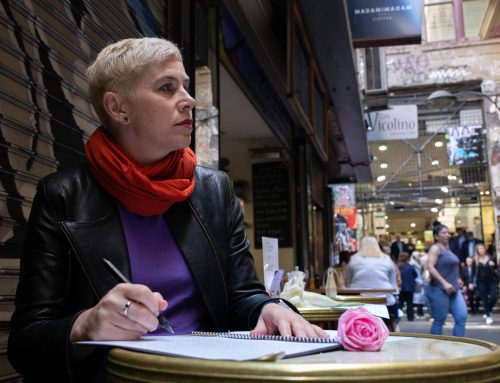Facilitating Work Futures
Recent Posts
Recent Comments
- TP 44: Su Lim Six Ideas - Tathra Street on Home NEW
- 1589:Tathra Street is a powerful paradigm shifter whose work is at the...) on TP 08: Backstory – Activist to Entrepreneur
- Linette on TP 40: Stephen Duns on Leadership’s Shadow
- TP 38: Jen Storey - Tathra Street on TP 27: Angus Hervey Future Crunch
- - Tathra Street on TP 36: Chantelle Baxter
Archives
- July 2023
- April 2021
- January 2021
- December 2020
- April 2020
- November 2019
- September 2019
- August 2019
- December 2018
- November 2018
- August 2018
- April 2018
- December 2017
- November 2017
- October 2017
- September 2017
- August 2017
- July 2017
- May 2017
- April 2017
- March 2017
- February 2017
- January 2017
- December 2016
- November 2016
- September 2016
- August 2016
- July 2016
- June 2016
- April 2016
- March 2016
- September 2015
- April 2014
Categories
Recent Posts
-
TP 10: Mark LeBusque – The Human ManagerJanuary 11th, 2017
-
TP 04: Jan Owen on Human Centred LeadershipDecember 1st, 2016
-
TP 29: Joshua Spodek Teaching Leadership PracticeMay 24th, 2017
-
What is Inclusive Leadership?July 4th, 2023
-
Why are diversity and inclusion important?April 19th, 2021
-
Goal Setting – pointless or purposeful?January 23rd, 2021
- No comments have been published yet.
Categories
Archives
- July 2023
- April 2021
- January 2021
- December 2020
- April 2020
- November 2019
- September 2019
- August 2019
- December 2018
- November 2018
- August 2018
- April 2018
- December 2017
- November 2017
- October 2017
- September 2017
- August 2017
- July 2017
- May 2017
- April 2017
- March 2017
- February 2017
- January 2017
- December 2016
- November 2016
- September 2016
- August 2016
- July 2016
- June 2016
- April 2016
- March 2016
- September 2015
- April 2014













Leave A Comment